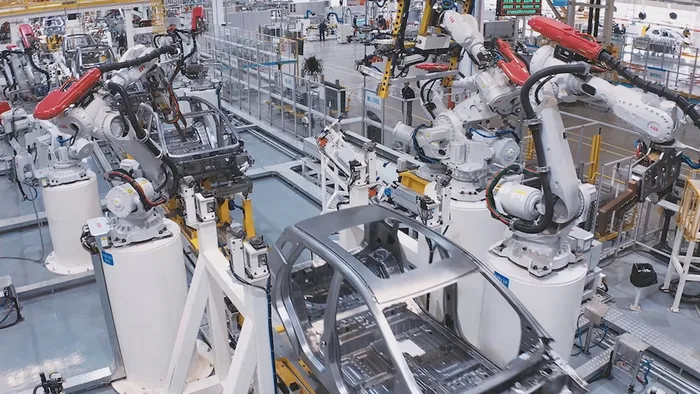Automotive industry braces for impact of Trump's proposed 30% tariffs on South Africa
US TARIFFS

The automotive industry raised concern about President Donald Trump’s 30% tariff on South Africa that could come into effect in a few days' time.
Image: supplied
The South African automotive industry is reeling from the announcement of a potential 30% tariff on automotive exports to the United States, expected to take effect in the coming days.
This move by President Donald Trump has sparked warnings from the Department of Trade, Industry and Competition of up to 30 000 job losses, with industry leaders voicing deep concerns over the implications for the nation’s economy.
Renai Moothilal, the CEO and Executive Director of the National Association of Automotive Component and Allied Manufacturers (Naacam), on Monday said that they were deeply concerned about the potential impact on South African automotive exports to the US.
“In 2024, South Africa exported R28.7 billion worth of automotive products to the US, of which R4.4 billion was attributable to automotive components,” Moothilal said.
“The US ranked as the country’s third-largest export destination for automotive goods, following Germany and Belgium. This accounted for 10.7% of South Africa’s total automotive exports, significantly supporting jobs, industrial output, and the country’s trade balance.”
Moothilal added that only about one third of South African automotive component exports to the US were affected under Section 232 measures, but with the latest tariff expansion, 100% of these exports are now impacted.
“The impact will be felt across the entire value chain. Direct component exporters to the US are likely to see reduced demand as buyers shift to more cost-effective sources,” he said.
“In addition, suppliers within South Africa who support domestic Original Equipment Manufacturers that export vehicles or integrated systems to the US may face volume reductions, putting pressure on production planning, employment, and investment decisions.”
Moothilal said that the imposition of tariffs would directly increase the landed cost of South African vehicles and components in the US market.
“This would make them less competitive compared to products from countries that continue to benefit from preferential or zero-duty access, such as those under the USMCA (United States-Mexico-Canada Agreement). Overall, such tariffs threaten to disrupt well-established trade flows and weaken the global competitiveness of South Africa’s automotive manufacturing ecosystem.”
Moothilal added that policy cushioning for component manufacturers impacted by the developments in the US was needed to assist the sector and protect its significant economic contribution.
Dr Eliphas Ndou, an economist and author at Unisa's Department of Economics, said that the imposition of 30% tariffs will reduce volumes of South Africa’s automotive sector's exports to the US.
“The large decline in car exports to the US reported by the Automotive Business Council in the first half of 2025, compared to the same period last year, suggests the contribution of the automotive sector to GDP this year will fall below the level reached in 2024,” he said.
Ndou added that, in addition, the economic cost includes the direct loss of employment from the sector, reduced contribution of personal income tax from this sector to total tax revenue, and loss of jobs and tax revenue from supplier networks.
Waldo Krugell, a Professor of Economics at North-West University, said that the major automotive exports to the US were BMW X3s and Mercedes C-class, and with the 30% tariff, they will be priced out of the market.
“We know that Mercedes has already suspended C-class production. This is already having a major impact on component suppliers. They cannot easily pivot to new markets because they are supplying a tailor-made product into a global supply chain,” Krugell said.
He added that the resulting production losses and job losses will be concentrated in the communities where the production takes place, which means East London specifically will be hard hit.
Khulekani Mathe, Business Unity South Africa CEO, said the impact on local industries was substantial.
“In the automotive sector, where exports to the US total approximately R24.1 billion, the exposure to tariffs will be monumental. The sector is currently facing 25% Section 232 tariffs, and the proposed 30% increase could raise total duties to 55%, rendering exports uncompetitive,” Mathe said.
“Approximately 20 000 jobs are at risk in this sector, affecting both OEMs and component manufacturers due to the new tariffs.”
BUSINESS REPORT